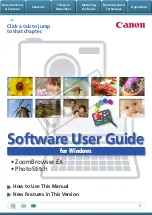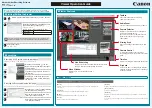
C H A P T E R 5
Moving and Sharing Virtual Machines
179
Preparing Your Virtual Machine for the Move
1. Open the virtual machine using the VMware product with which you created it.
If the virtual machine has more than one virtual disk and if the virtual disks use
different disk modes, you must use the Configuration Editor (choose
Settings
>
Configuration Editor
) to change one or more of the virtual disks so they all use
the same mode.
2. Be sure you know whether the virtual disk is set up as an IDE disk or a SCSI disk.
You can check this in the virtual machine settings editor.
Also, note the size of the virtual disk you are moving. You need this information
when you prepare the new host machine, as described in the next section.
3. Be sure the guest operating system is completely shut down. If the virtual
machine is suspended, resume it using the VMware product with which you
created the virtual machine, then shut down the guest operating system.
Note:
Do not move a suspended virtual machine from one host to another.
4. If your virtual machine is using disks in undoable mode, it is best to commit or
discard the changes when the guest operating system shuts down. If you cannot
commit or discard the changes to your disk, read
Disks in Undoable Mode on page 180
.
5. If you have a network connection between the original host machine and the
new host, you are finished with the preparations on the original host. If you do
not have a network connection, you need to have a way of moving the virtual
disk (
.vmdk
) files from the virtual machine’s directory to the new host. You
could move them to a shared network directory, for example, or burn them to
CD-ROMs or DVD-ROMs.
Note:
If your disks are using undoable mode and you have not committed or
discarded your changes, you must also move the redo-log (
.REDO
) file to the
new host computer.
Preparing the New Host Machine
1. Make sure GSX Server 3 is installed and working correctly on the new host.
2. Start the VMware Virtual Machine Console and run the New Virtual Machine
Wizard. Select the appropriate guest operating system for the virtual machine
you are moving.
Choose a virtual disk for your hard drive and use a drive type (IDE or SCSI) that
matches the type of the virtual disk you plan to move.
Summary of Contents for GSX Server 3 Administration
Page 1: ...Administration Guide TM...
Page 8: ...www vmware com 8...
Page 42: ...www vmware com 42 VMware GSX Server Administration Guide...
Page 86: ...www vmware com 86 VMware GSX Server Administration Guide...
Page 184: ...www vmware com 184 VMware GSX Server Administration Guide...
Page 226: ...www vmware com 226 VMware GSX Server Administration Guide...
Page 240: ...www vmware com 240...
















































